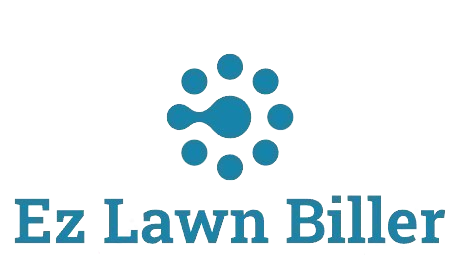Stay Compliant: Best Practices for Lawn Care Pros
As a lawn care professional, staying compliant with industry regulations and best practices is essential for maintaining a successful business. This blog post delves into the best practices that will help you navigate compliance issues, ensuring that your services not only meet legal requirements but also enhance client satisfaction. From understanding local regulations to leveraging technology, we will cover practical tips and insights to keep your lawn care business compliant and thriving.
In the fast-paced world of lawn care, compliance is not just about avoiding penalties; it’s about building a reputable brand that clients trust. Lawn care professionals must adhere to various regulations related to pesticide use, waste disposal, and labor laws. Ignoring compliance can lead to legal troubles and jeopardize your business’s reputation. This article will take you through essential compliance practices, technological aids, and common pitfalls to avoid. Let’s dive in!
Understanding Local Regulations
One of the most crucial aspects of remaining compliant in the lawn care industry is understanding the local regulations that govern your services. Each state and municipality may have specific laws regarding the use of pesticides, fertilizers, and landscape maintenance practices. For instance, certain chemicals may be banned in specific areas, while licensing requirements can vary significantly.
Before commencing any lawn care operations, it’s imperative to familiarize yourself with the local laws. This includes obtaining the necessary licenses and permits for your business, which may involve passing certification exams. Additionally, you should keep abreast of any changes in regulations, which can happen frequently. Regularly checking the websites of local environmental agencies can help you stay informed.
For those operating in multiple regions, maintaining a checklist of the different regulations is beneficial. For example, a lawn care business in California might face stricter regulations concerning water use and pesticide application compared to one in Texas. By being well-informed, you can avoid costly fines and build a reputation for reliability and professionalism.
Implementing Safety Protocols
Safety is paramount in the lawn care industry, not just for your clients but for your employees as well. Establishing and implementing robust safety protocols can help minimize accidents and ensure compliance with Occupational Safety and Health Administration (OSHA) standards. This includes providing proper training on equipment use, chemical handling, and emergency procedures.
Regular safety audits can help assess the effectiveness of your protocols. For instance, conducting weekly safety meetings can remind your team of best practices and encourage open communication regarding safety concerns. Equip your team with personal protective equipment (PPE) such as gloves, goggles, and masks, especially when handling chemicals or operating heavy machinery.
Additionally, consider documenting your safety procedures and training sessions. This not only helps in maintaining compliance but also serves as a reference for your team. By prioritizing safety, you cultivate a work environment that values employee well-being, which can lead to increased productivity and morale.
Using Technology to Streamline Compliance
Embracing technology can significantly enhance your compliance efforts. One effective way is through the use of lawn billing software, such as EZ Lawn Biller, which automates invoicing and service tracking. This software can help ensure accurate record-keeping, which is crucial for compliance with financial regulations.
Furthermore, utilizing a lawn service app can improve communication among your team members. These apps often feature scheduling tools that keep track of service dates and compliance with local regulations. Having a centralized platform allows you to monitor services performed, including any chemicals used and the location of application, ensuring that you adhere to safety and environmental guidelines.
Additionally, consider implementing a service company software that offers features like reporting and analytics. This can streamline documentation related to compliance and provide insights into operational efficiency. By leveraging technology, you can reduce the administrative burden associated with compliance and focus more on delivering quality services.
Environmental Considerations
In today’s environmentally-conscious society, lawn care professionals must pay close attention to sustainable practices. Compliance with environmental regulations is essential, and adopting eco-friendly techniques can be a significant selling point for your business. Practices such as integrated pest management (IPM) not only comply with regulations but also promote a healthier ecosystem.
For instance, using organic fertilizers and pesticides can minimize the environmental impact of your services while complying with local environmental guidelines. Moreover, educating your clients about the benefits of sustainable lawn care can build trust and loyalty, as many homeowners are now looking for greener options.
Additionally, consider implementing waste reduction strategies. Proper disposal of lawn waste not only helps the environment but also ensures compliance with local waste management regulations. By offering mulching services or composting organic waste, you can stand out as a responsible lawn care provider committed to sustainability.
Client Communication and Transparency
Effective communication with your clients is vital for maintaining compliance and fostering trust. Be transparent about the services you provide, including any chemicals used in their lawn care. Providing clients with detailed information about the safety protocols followed during treatments helps them understand the care taken to protect their families and pets.
Moreover, consider sending follow-up communication after services are rendered. This could be in the form of an email or a message through your lawn company app, summarizing the services performed, products used, and safety precautions taken. This not only keeps your clients informed but also reinforces your commitment to compliance and professionalism.
Additionally, solicit feedback from your clients about their satisfaction with your services. Client feedback can provide insight into areas for improvement and demonstrate your willingness to adapt to their needs. By maintaining open lines of communication, you strengthen client relationships and build a loyal customer base.
Continuous Education and Training
The lawn care industry is continually evolving, with new products, techniques, and regulations emerging regularly. To remain compliant, it is essential to invest in continuous education and training for yourself and your staff. Attend workshops, seminars, and industry conferences to stay updated on the latest trends and best practices.
Furthermore, consider online courses that focus on regulatory compliance, environmental stewardship, and safety training. Many organizations offer certification programs that can enhance your credibility and demonstrate your commitment to excellence. By prioritizing education, you position your business as a knowledgeable leader in the lawn care field.
Additionally, establish a culture of learning within your organization. Encourage your team to share knowledge and experiences, fostering an environment where everyone is invested in compliance and best practices. This not only improves overall efficiency but also enhances the quality of service provided to your clients.
Common Pitfalls to Avoid
While striving for compliance, it’s essential to be aware of common pitfalls that can jeopardize your efforts. One major error is neglecting documentation. Keeping accurate records of services, chemical usage, and safety protocols is crucial for staying compliant. Without proper documentation, you may find yourself facing legal issues should a compliance review occur.
Another pitfall is failing to stay updated on changing regulations. Since laws can vary greatly from one jurisdiction to another, it’s vital to regularly review local guidelines. By establishing a routine, such as quarterly check-ins on regulatory updates, you can avoid unexpected compliance challenges.
Lastly, undervaluing the importance of training can lead to significant risks. Ensuring that all staff members are properly trained on compliance issues protects not only your business but also your employees and clients. Regular training sessions can help reinforce the standards expected within your company.
Leveraging Community Resources
Local and national organizations can be valuable resources for lawn care professionals seeking to enhance their compliance knowledge. Associations such as the National Association of Landscape Professionals offer a wealth of information on best practices, regulations, and training opportunities. Engaging with these resources can provide you with insights into industry trends and compliance strategies.
Additionally, local extension services often provide educational programs and workshops tailored to the lawn care industry. Connecting with these resources can offer you networking opportunities and access to industry experts. Participating in community events can also enhance your visibility and reputation as a compliant, knowledgeable lawn care provider.
Joining professional networks can also be beneficial. These platforms allow you to share experiences and learn from others in the industry, helping you stay informed about best practices and compliance challenges that peers face. By leveraging community resources, you can strengthen your business and ensure ongoing compliance.
Conclusion
In conclusion, staying compliant as a lawn care professional is not only about following regulations; it’s about building a trusted and reputable business. By understanding local regulations, implementing safety protocols, leveraging technology, and prioritizing communication, you can navigate compliance challenges effectively.
Moreover, investing in continuous education and avoiding common pitfalls will further solidify your commitment to excellence in the lawn care industry. As regulations evolve, remaining proactive in your compliance efforts can set your business apart and enhance client satisfaction.
As you move forward, consider exploring tools like [Lawn Biller Software](https://ezlawnbiller.com/) to streamline your billing processes and keep your operations compliant. With the right practices and tools in place, your lawn care business will not only thrive but also contribute positively to the communities you serve. Start implementing these best practices today and watch your business flourish!




